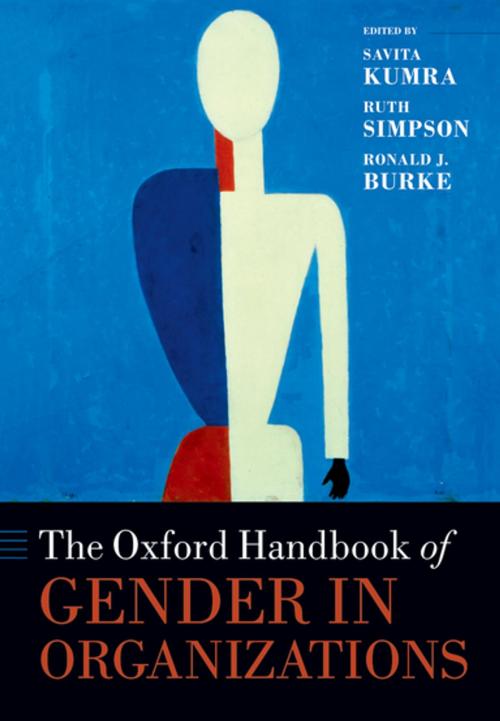The Oxford Handbook of Gender in Organizations
Business & Finance, Human Resources & Personnel Management, Organizational Behavior, Nonfiction, Social & Cultural Studies, Social Science| Author: | ISBN: | 9780191632754 | |
| Publisher: | OUP Oxford | Publication: | March 13, 2014 |
| Imprint: | OUP Oxford | Language: | English |
| Author: | |
| ISBN: | 9780191632754 |
| Publisher: | OUP Oxford |
| Publication: | March 13, 2014 |
| Imprint: | OUP Oxford |
| Language: | English |
The issue of gender in organizations has attracted much attention and debate over a number of years. The focus of examination is inequality of opportunity between the genders and the impact this has on organizations, individual men and women, and society as a whole. It is undoubtedly the case that progress has been made with women participating in organizational life in greater numbers and at more senior levels than has been historically the case, challenging notions that senior and/or influential organizational and political roles remain a masculine domain. The Oxford Handbook of Gender in Organizations is a comprehensive analysis of thinking and research on gender in organizations with original contributions from key international scholars in the field. The Handbook comprises four sections. The first looks at the theoretical roots and potential for theoretical development in respect of the topic of gender in organizations. The second section focuses on leadership and management and the gender issues arising in this field; contributors review the extensive literature and reflect on progress made as well as commenting on hurdles yet to be overcome. The third section considers the gendered nature of careers. Here the focus is on querying traditional approaches to career, surfacing embedded assumptions within traditional approaches, and assessing potential for alternative patterns to evolve, taking into account the nature of women's lives and the changing nature of organizations. In its final section the Handbook examines masculinity in organizations to assess the diversity of masculinities evident within organizations and the challenges posed to those outside the norm. In bringing together a broad range of research and thinking on gender in organizations across a number of disciplines, sub-disciplines, and conceptual perspectives, the Handbook provides a comprehensive view of both contemporary thinking and future research directions.
The issue of gender in organizations has attracted much attention and debate over a number of years. The focus of examination is inequality of opportunity between the genders and the impact this has on organizations, individual men and women, and society as a whole. It is undoubtedly the case that progress has been made with women participating in organizational life in greater numbers and at more senior levels than has been historically the case, challenging notions that senior and/or influential organizational and political roles remain a masculine domain. The Oxford Handbook of Gender in Organizations is a comprehensive analysis of thinking and research on gender in organizations with original contributions from key international scholars in the field. The Handbook comprises four sections. The first looks at the theoretical roots and potential for theoretical development in respect of the topic of gender in organizations. The second section focuses on leadership and management and the gender issues arising in this field; contributors review the extensive literature and reflect on progress made as well as commenting on hurdles yet to be overcome. The third section considers the gendered nature of careers. Here the focus is on querying traditional approaches to career, surfacing embedded assumptions within traditional approaches, and assessing potential for alternative patterns to evolve, taking into account the nature of women's lives and the changing nature of organizations. In its final section the Handbook examines masculinity in organizations to assess the diversity of masculinities evident within organizations and the challenges posed to those outside the norm. In bringing together a broad range of research and thinking on gender in organizations across a number of disciplines, sub-disciplines, and conceptual perspectives, the Handbook provides a comprehensive view of both contemporary thinking and future research directions.















